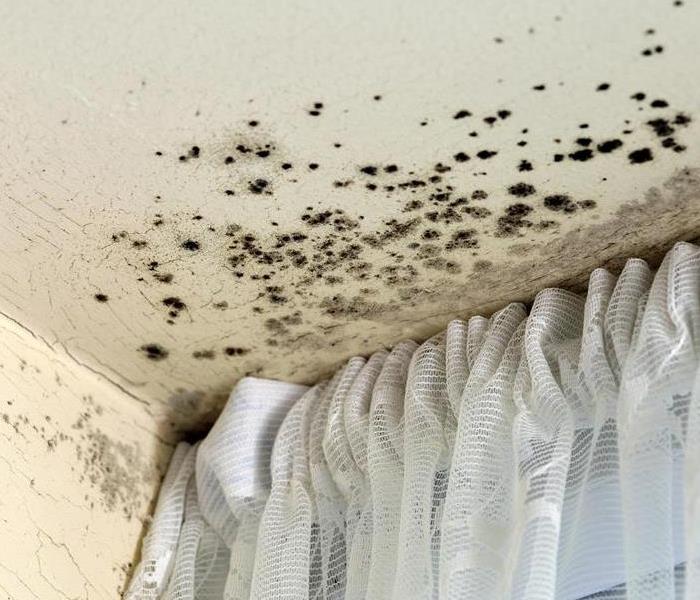The High Cost of Mold Damage: Understanding the Financial Impact
5/8/2023 (Permalink)
Molds are fungi, which are microscopic organisms that live on dead organic matter. They can be found in soil, plants, and even your own home.
Mold is a type of fungus that grows in damp places like bathrooms or basements. It feeds on organic matter such as wood or paper products and can cause allergic reactions in people who are sensitive to it.
The most common types of mold include:
Black mold (also known as Stachybotrys chartarum). This type of mold looks like dark greenish-black fuzz growing on surfaces such as walls or ceilings in your home; it may also appear as black spots on clothes left in damp areas like laundry rooms; if you have this type of mold growing in your house then you should contact an expert right away because it could cause health problems if inhaled over time.
What Causes Mold?
Mold is a type of fungus that grows in damp environments. It can be harmful to people, animals and buildings if it's allowed to grow unchecked. Mold spores are everywhere, but they won't grow unless they have access to moisture, oxygen and food sources like wood or paper.
Mold can grow on almost any surface where there's enough water damage, from the walls in your bathroom to the ceiling in your attic but it thrives most easily when there's been flooding or other major water leaks (like burst pipes).
If you notice mold growing anywhere in your home or office building after a flood has occurred, it's important not only for safety reasons but also because of how much damage it can cause.
Signs of Mold in the Home
Here are the most common signs of mold in the home:
Musty smell. If you notice a musty odor, it could be an indication that you have a moisture problem and are at risk for mold growth.
Discolored walls or ceilings. If your wall paint looks faded or discolored, this may be due to mold growth on the surface of your walls or ceiling boards.
Visible mold growth in places like showers and sinks where water has been sitting for long periods of time (for example, if there's been an overflow).
Financial Impact
Financially, mold can be costly. Hiring a professional in mold remediation can help remediate and ensure your property is safe from mold damage. Mold inspections should also be done regularly by someone who knows what they're looking for a professional inspector will know how much damage has been done and whether or not it needs immediate attention before it gets worse!
If you have mold in your home, it's important to take the right precautions and contact a professional. Mold can be dangerous if not treated properly, so make sure you know how much it will cost to get rid of the problem before proceeding.





 24/7 Emergency Service
24/7 Emergency Service
